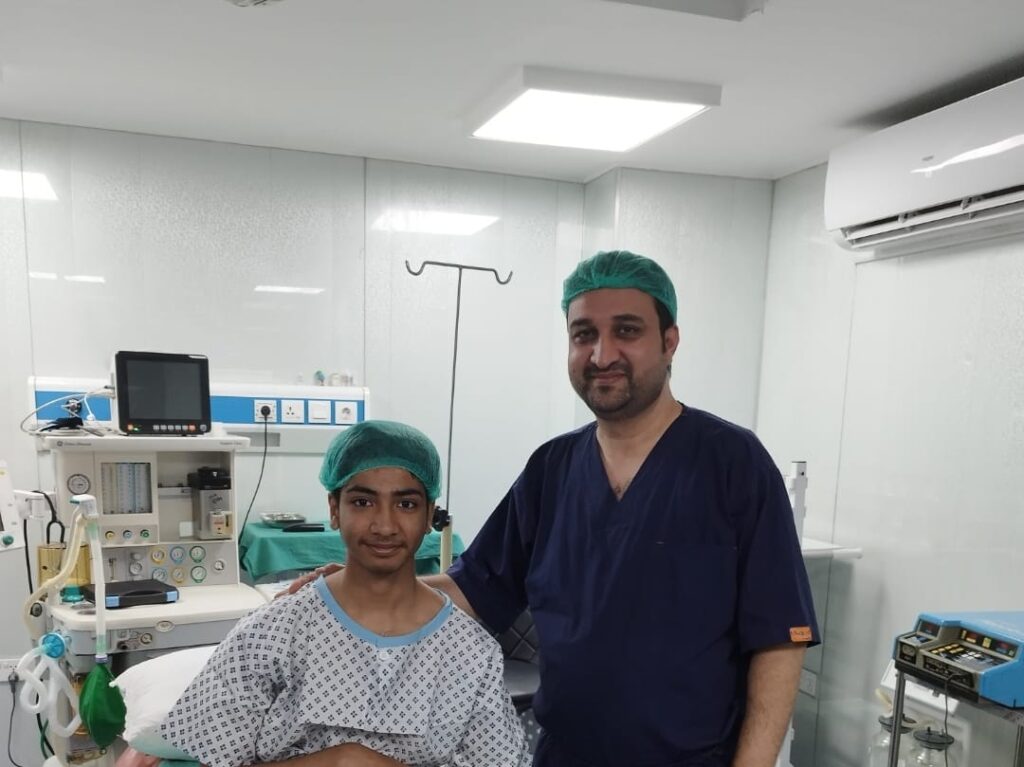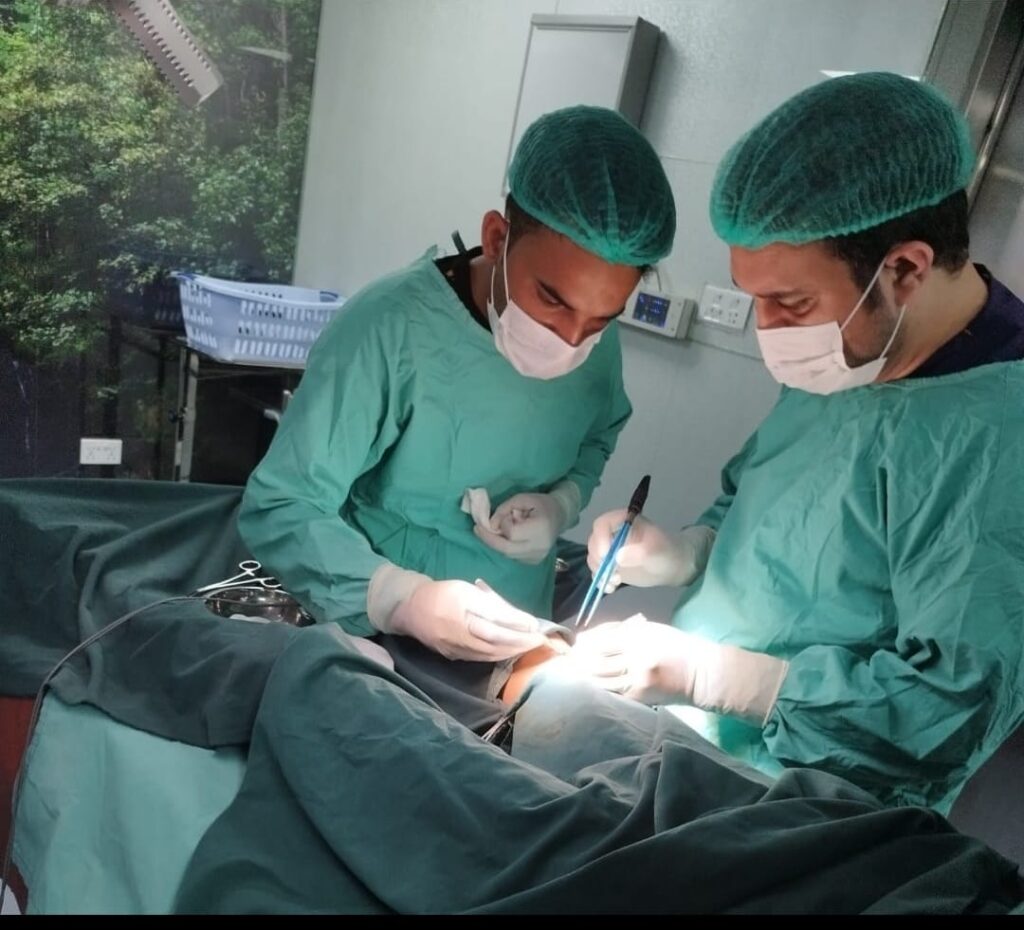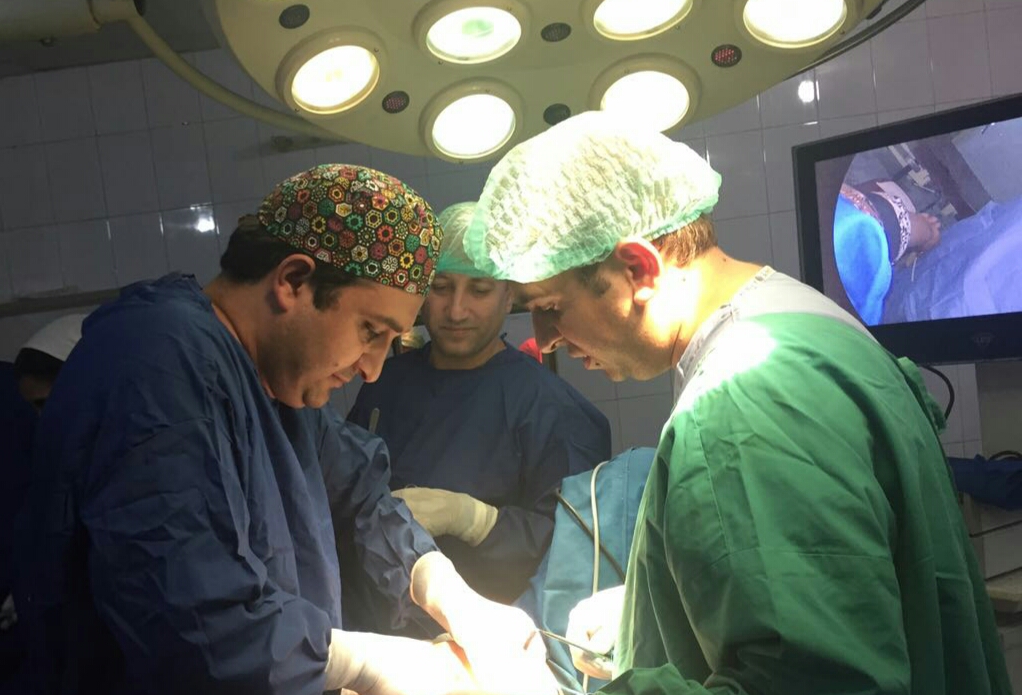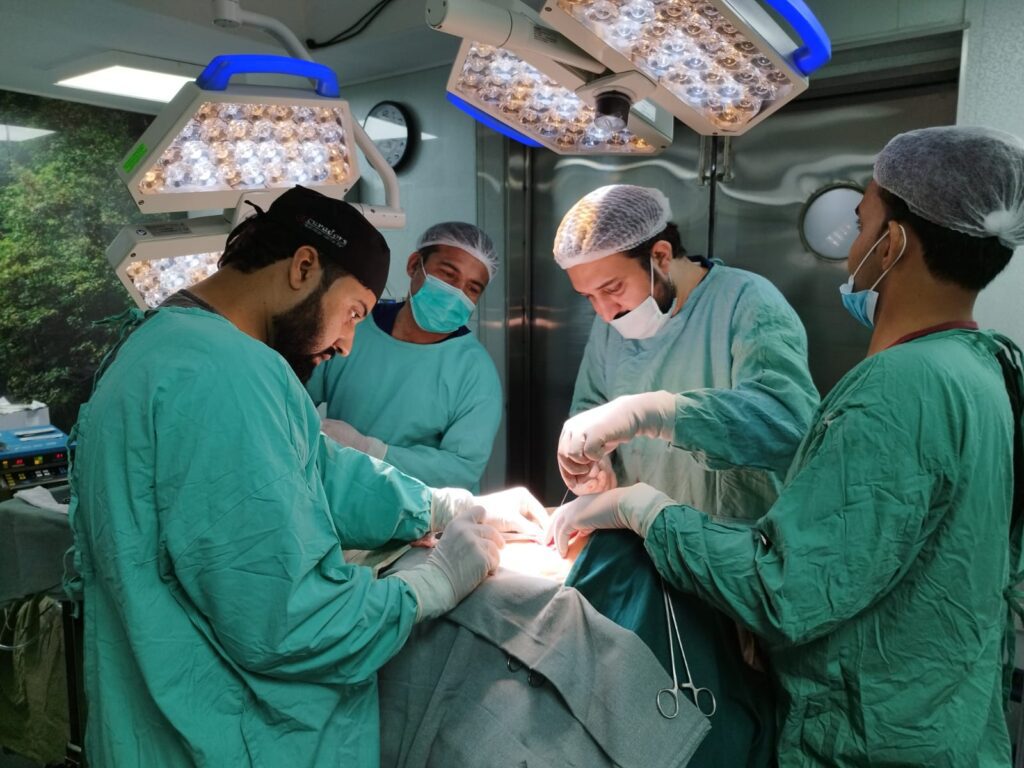- contact@laparoscopyadvice.com
- General Practice Hospital, G-9/2 Islamabad
- Mon - Fri: 10:00 am - 7:00 pm
Visiting Hours
| Mon - Fri: | 8:00 am - 8:00 pm |
| Saturday: | 9:00 am - 6:00 pm |
| Sunday: | 9:00 am - 6:00 pm |
Gallery Posts






| Mon - Fri: | 8:00 am - 8:00 pm |
| Saturday: | 9:00 am - 6:00 pm |
| Sunday: | 9:00 am - 6:00 pm |







Introduction
Advanced breast cancer, also known as metastatic breast cancer or stage IV breast cancer, refers to breast cancer that has spread beyond the breast and nearby lymph nodes to other parts of the body, such as the bones, liver, lungs, or brain. While early detection and treatment advancements have improved survival rates for breast cancer, advanced breast cancer remains a challenging condition associated with significant morbidity and mortality.
Understanding Advanced Breast Cancer
Advanced breast cancer occurs when cancer cells break away from the primary tumor in the breast and travel through the bloodstream or lymphatic system to form secondary tumors in distant organs or tissues. Once breast cancer metastasizes, it becomes more difficult to cure, and treatment focuses on managing symptoms, prolonging survival, and maintaining quality of life.
Progression: Advanced breast cancer is characterized by the spread of cancer cells to distant sites in the body, leading to the formation of secondary tumors or metastases.
Symptoms of advanced breast cancer may vary depending on the location of metastases but can include bone pain, shortness of breath, jaundice, neurological symptoms, or unexplained weight loss.



Systemic Therapy: Systemic treatments such as chemotherapy, hormonal therapy, targeted therapy, or immunotherapy are commonly used to manage advanced breast cancer. These treatments aim to control cancer growth, alleviate symptoms, and improve overall survival.
Surgery: In some cases, surgery may be performed to remove metastatic tumors or alleviate symptoms, such as pain or obstruction.
Radiation Therapy: Radiation therapy may be used to relieve symptoms associated with metastatic lesions, such as bone pain or brain metastases.
Palliative Care: Palliative care focuses on providing relief from symptoms and improving the quality of life for patients with advanced breast cancer. It addresses physical, emotional, and spiritual needs, aiming to optimize comfort and well-being.
Clinical Trials: Participation in clinical trials offers access to innovative treatments and therapies that may not be available through standard care. Clinical trials play a crucial role in advancing our understanding of advanced breast cancer and developing new treatment strategies.
Prognosis: The prognosis for advanced breast cancer varies depending on factors such as the extent of metastases, tumor biology, treatment response, and overall health. While advanced breast cancer is generally not curable, advancements in treatment have led to improved survival rates and quality of life for many patients.
Support: Coping with advanced breast cancer can be challenging, both emotionally and physically. Seeking support from healthcare providers, support groups, counselors, or online communities can provide valuable guidance, encouragement, and resources for patients and their loved ones.
Q: What are the risk factors for advanced breast cancer?
A: Risk factors for advanced breast cancer include a history of breast cancer, genetic mutations (such as BRCA1 and BRCA2), hormone receptor status, age, family history, and lifestyle factors (such as alcohol consumption or obesity).
Q: Is advanced breast cancer treatable?
A: While advanced breast cancer is generally not curable, it is treatable. Treatment aims to control cancer growth, manage symptoms, and improve quality of life. Advances in treatment options have led to improved outcomes and longer survival for many patients with advanced breast cancer.
| Mon - Fri: | 9:00 am - 7:00 pm |
| Saturday - Sunday: | Off |
Copyright 2023 Adil's Laparoscopy World | Powered by Dynaamx